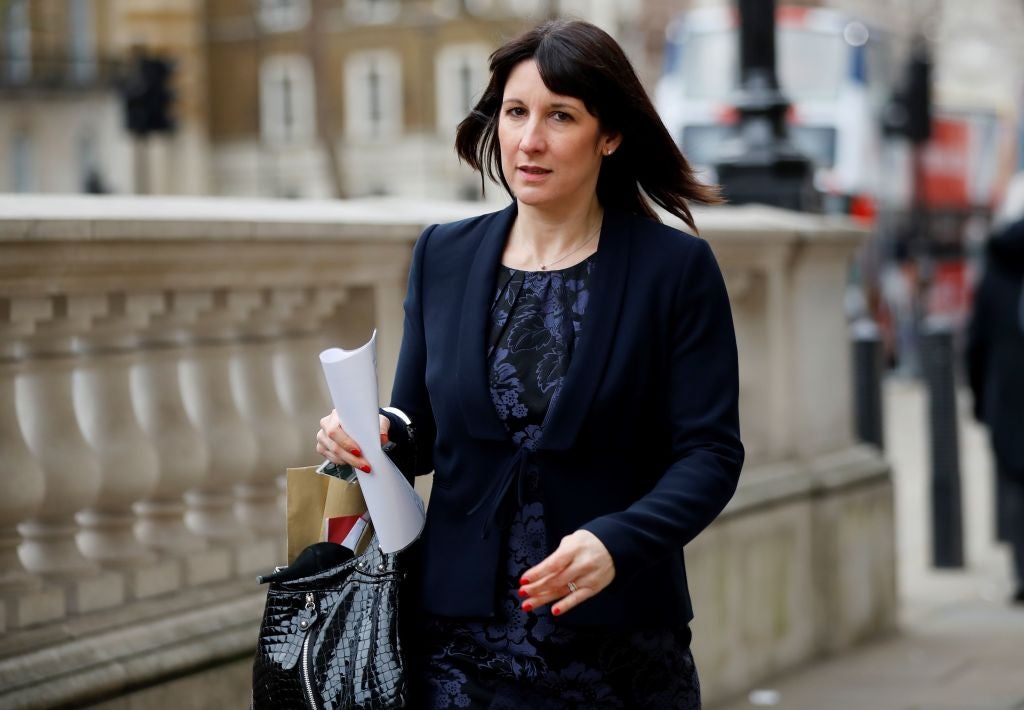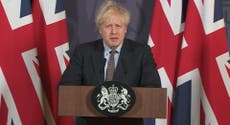Labour will back this underwhelming Brexit deal but that does not mean we welcome it
When the bill is presented to the Commons on Wednesday, we will vote in the national interest, reject no deal and move the country on – but Boris Johnson and his government will own it


Your support helps us to tell the story
From reproductive rights to climate change to Big Tech, The Independent is on the ground when the story is developing. Whether it's investigating the financials of Elon Musk's pro-Trump PAC or producing our latest documentary, 'The A Word', which shines a light on the American women fighting for reproductive rights, we know how important it is to parse out the facts from the messaging.
At such a critical moment in US history, we need reporters on the ground. Your donation allows us to keep sending journalists to speak to both sides of the story.
The Independent is trusted by Americans across the entire political spectrum. And unlike many other quality news outlets, we choose not to lock Americans out of our reporting and analysis with paywalls. We believe quality journalism should be available to everyone, paid for by those who can afford it.
Your support makes all the difference.The government’s Trade and Cooperation Agreement with the EU has finally been signed. But the months of dither, delay and theatrics mean it has come far too late for many businesses and caused unnecessary damage to the economy.
Certainty and stability is what business thrives on. In their absence, investment and jobs have been lost, especially in sectors left with no clarity over whether or not they would face tariffs on their goods after we leave the EU.
There was no reason that a deal this unambitious for Britain had to be left until the final days of the transition period. It’s not clear why a deal the prime minister said was “oven-ready” and claimed could be resolved in July was moved to September and October before being finalised only a few days ago.
There was no rabbit pulled from the hat this week and no early Christmas present that would make the pain to UK businesses even remotely worthwhile. As usual with this government, it was all about creating the illusion of tough negotiation to hide the reality.
By taking the country to the wire, the government has left little parliamentary time to scrutinise the deal. So much for “take back control” – this is more, “be grateful you’ve got anything”.
It also leaves the country with only two narrow paths. Down one is Johnson’s limited and unimpressive deal with the EU. Down the other is the chaos of ending the transition period with no deal, which would mean substantial tariffs and barriers to trade. Neither one is ideal. Neither one will deliver for jobs, business or the economy. But a bad deal is better than no deal at all.
Labour has always said that to crash out at the end of the year with no agreement with our biggest trading partners would be unthinkable. No deal would close the door on many businesses in highly exposed sectors, including manufacturing and farming.
It is understandable that business organisations are relieved that a deal has been reached by the UK and the EU. We all are. A deal of any form provides a degree of stability after having had to endure Johnson’s reckless schoolboy games on top of the turmoil of Covid-19.
However, the government’s pitiful preparations and political choices will unleash more red tape on many importers and exporters than they have faced in decades.
I’ve repeatedly asked Michael Gove what the government is doing to prepare – including, crucially, how many of the 50,000 promised extra customs agents have been trained and are ready for 1 January. The silence has been deafening.
More than 80 per cent of our economy is made up of services. The strategic choice to neglect them and its professionals will prove a historic mistake given the importance of accountancy, the arts, finance, media, law and architecture to our economy. Our qualifications won’t be recognised in Europe, making it harder for British businesses and individuals to win contracts abroad.
Our security measures will be weakened by the loss of the SIS II database – a database used by police 603 million times in 2019 to share details in real time, including of wanted people. Worryingly, the UK will also lose the European Arrest Warrant, which we used to bring terrorists to justice after the London bombings in 2005. More holes will be exposed in the coming weeks and months, which must be mended in the future.
There will be many who argue that this deal is worse than our deal as members of the European Union, but that ship has sailed. The UK left the EU on 31 January 2020 and we need to shape our future outside of the European Union.
A Labour government would inherit this deal in 2024. It may be the Tories’ ceiling of ambition, but for Labour it must be a foundation on which to build upon.
Labour is firmly focused on making this the best country to grow up in and to grow old in – helping young people seize opportunities wherever they are and protecting the planet for the future, ensuring good jobs for workers, security for families and comfort in old age.
That is acting responsibly. It is putting the country first. It is choosing policy before politics. And it’s something this government has repeatedly failed to do.
It’s clear this government didn’t fight anywhere near enough for those people whose hard earned qualifications now won’t be recognised in Europe, for access to certain security databases to keep us safe, or for our brilliant creative industries, which will now face huge bureaucracy and costs to tour and showcase their talent.
Post-Brexit, Labour’s vision is for a race to the top, not a race to the bottom. We want good jobs, good quality of life, standards and rights – the biggest challenges facing our country and planet require cooperation and international solutions. We cannot provide solutions to tackling Covid-19 or climate breakdown without alliances and leadership. That involves working together to meet our ambitions in the world.
The immediate choice for MPs this week may not be pleasant, but it is binary. On the one hand: accept an underwhelming trade deal, agreed by the EU and UK, which falls short of what was promised, but still provides a platform to build on. On the other: choose to back no deal – or hope against hope that something better will suddenly appear that stops the threat of a no-deal exit next week.
That the country is now faced with these two stark choices is wholly the responsibility of the government. That Labour will choose the less worse option for business, supply chains, the economy and jobs doesn’t mean we welcome it. This is Johnson’s deal: he and his government will own it. And we are clear what we mean by that: the next Labour government will seek to build on this deal, not cheerlead for it.
When the bill is presented to the Commons on Wednesday, we will vote in the national interest, reject no deal and move the country on. But the task of securing the economy, protecting the NHS and rebuilding the country will only just have begun.
Rachel Reeves is the shadow minister for the Cabinet Office and shadow chancellor of the Duchy of Lancaster. She is the Labour MP for Leeds West




Join our commenting forum
Join thought-provoking conversations, follow other Independent readers and see their replies
Comments